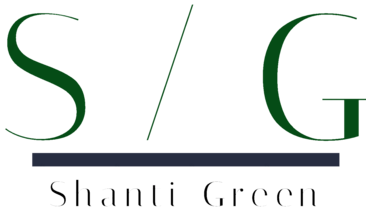Addiction can profoundly impact all areas of one’s life due to its complexity. It can destroy relationships, lead to financial hardship, and even impact their health.
Many people associate addiction with substances like alcohol and drugs, but you can also become addicted to compulsive behaviors like shopping or gambling. Understanding the different types of addiction can help you recognize warning signs and seek professional treatment.
Behavioral Addiction
Behavioral addiction, also called process addiction, is the compulsion to engage in an unhealthy non-drug-related behavior or activity that could lead to severe functional impairment. Common examples include shopping, eating, gambling, and pornography addictions.
Much like substance use disorders, people with behavioral addictions experience a similar ego-syntonic relationship to their activities (meaning they feel pleasure or satisfaction when engaging in the behavior) and ego-dystonic reactions (the negative consequences of the behavior). In addition to financial, marital, and legal issues, many people who struggle with this addiction will engage in criminal acts such as theft, embezzlement, and writing bad checks to fund their habit.
When it comes to teen behavioral addictions, many are obsessed with their favorite bands or TV shows, but there is often a fine line between single-minded passions and addiction. Like any other addiction, a thorough evaluation is required to determine if co-occurring mental health disorders or substance abuse issues exist.
Chemical Addiction
Drug addiction is a chronic condition marked by uncontrollable drug craving and use despite its negative impact on the individual’s life. Unlike behavior addiction, chemical dependency on drugs results from brain changes that challenge self-control and interfere with resisting intense urges to use the drug. Common drugs of abuse include alcohol, marijuana, opiates (cocaine, heroin), non-narcotic central nervous system depressants such as short- and long-acting barbiturates and tranquilizers, and stimulants such as methamphetamine and amphetamine. People who develop a drug addiction may also have polydrug use, switching between the drugs and using them to deal with different problems and emotions.
Symptoms of drug addiction may include broken promises or failing to do what’s needed at work, home, and in relationships. Other signs are spending time thinking about drug use, how to get more, and what it feels like. You may have bloodshot eyes, bad breath, tremors, or other physical symptoms of withdrawal. Addiction treatment Yorktown Heights NY, programs for chemical dependency are based on the type of drug used, typically including detoxification and individual or family psychotherapy.
Physical Addiction
Many drugs are addictive and can cause both psychological and physical dependence. They include illegal drugs, such as heroin or cocaine, and prescription medications that are abused, such as benzodiazepines like Valium, and opioids, including painkillers and narcotics. Addiction to these substances can also be deadly if left untreated. Signs of physical addiction include a need to use more and more of the drug to get the same effect (tolerance) and a loss of control over using it despite adverse consequences. People who become addicted to drugs often lie and steal to get more of the substance, take dangerous risks, and experience withdrawal symptoms when they stop using the drug.
The onset of physical addiction is influenced by environmental factors and genetics, including an abusive family environment and exposure to a peer group that promotes drug use. Unlike behavioral addiction, physical addiction can be treated with medication and other therapy techniques.
Mental Addiction
A person with psychological addiction will crave substances like alcohol and other drugs. They cannot stop using the drugs even when they know they are causing problems.
People with a mental addiction may experience withdrawal symptoms like insomnia, irritability, and appetite changes when they stop using the addictive substance or behavior. They can also suffer from a lack of motivation and difficulty experiencing pleasure.
Psychological addiction typically occurs when a person uses drugs and other substances to escape their problems or cope with a particular mental health issue. Various things, such as stress, depression, anxiety, or peer pressure, can cause this addiction. Treatment options for mental addiction include inpatient rehabilitation programs, group and individual therapy, and relapse prevention plans. The underlying causes of mental addiction are often addressed during these treatments.
